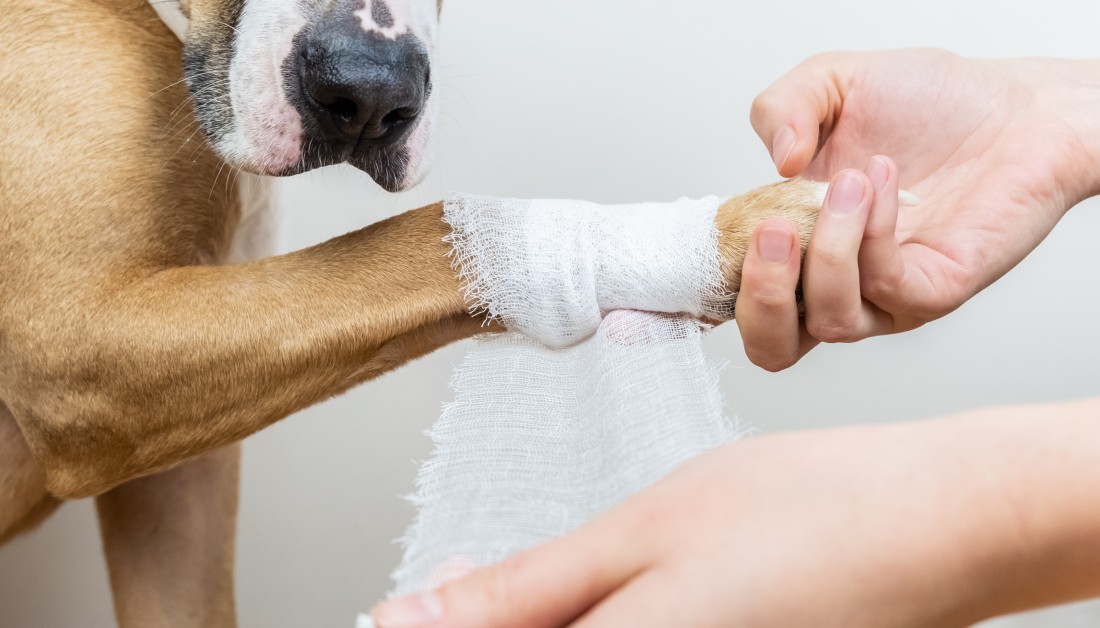Pet Care Emergency? Here's What You Need to Know
A little knowledge can help you respond properly to a pet care emergency,

It's every pet owner's nightmare: one minute your beloved animal is fine, and then next it's showing clear signs of a sudden, anticipated health crisis. When a pet emergency occurs, you don't want to waste precious time figuring out what the symptoms mean and what you should do about them. Now's the time to learn what you need to know -- before something unexpected occurs. So let's go through some emergency tips for pet owners.
Learn to Recognize Signs of Pet Emergency
A pet emergency can take many forms and have many possible causes. For instance, on a hot summer day an animal can easily collapse from heat stroke. In another instance, a variety of household products, automotive fluids, or just the wrong kinds of foods can prove poisonous. Injuries such as fractured bones and deep lacerations may require emergency care. In some cases, underlying health conditions can cause seizures, internal bleeding, and other potential emergencies.
While a veterinary exam may be necessary to determine the exact cause of your pet's crisis, you should know how to spot symptoms that can alert you to a potential emergency. Watch out for following trouble signs:
- Heat-related disorientation or collapse
- Uncontrollable bleeding and/or blood coming from your pet's orifices
- Eye damage
- Vocalizing, shivering, and other signs of severe distress
- Violent, recurring bouts of vomiting and/or diarrhea
- Loss of consciousness
- Prolonged, difficult labor (dystocia)
- Inability to urinate or defecate
- Unwillingness or inability to drink water.
Keep Your Pet Calm
A pet care emergency can be stressful and alarming for both you and your pet. Keep in mind that your pet may grow anxious or aggressive when it's in distress. Approach the animal cautiously and slowly, calling it by name to reassure it as much as possible. Since a pet experiencing an emergency may instinctively bite if touched, cover your pet in a light towel to protect yourself as you soothe the injured or ailing animal.
Check for Potential Poisoning or Toxin Ingestion
It's all too easy for pets to consume something around the house that they shouldn't. Common pet toxins range from cleaning products and pesticides to seemingly harmless foods such as yeast dough, grapes, raisins, onions, chocolate, and garlic. If your pet appears sick, drowsy, or agitated for no obvious reason, check to see if it's gotten into any products that might have poisoned it.
You might think that you should make your pet throw up if it's ingested a toxin. Don't take this step without first calling a veterinarian for advice. Some poisonous substances can do even more damage when they come back up. Your veterinary clinic can remove or neutralize these substances safely.
Administer Pet First Aid as Needed
Sometimes you need to start treatment for a pet emergency right away, before transporting your pet to the animal hospital. For instance, you might need to fish a blockage out of your choking pet's throat, perform a modified version of the Heilich maneuver to dislodge a stubborn swallowed object, or apply a tourniquet to slow severe bleeding. If you can find an emergency first aid course for pets, take it! Otherwise, get on the phone to your vet team and let them talk you through any necessary first aid techniques.
Take Your Pet to an Emergency Vet Clinic
Once you've performed any necessary first aid on your pet, it's time to load it into your vehicle and take them to your closest emergency veterinary clinic. A smaller animal can travel safely in a crate or carrier. Just make sure you're supporting your pet's head, neck, and back as you move it. If your pet won't fit into a crate or carrier, enlist someone else's aid to place your pet on a blanket, carry the pet into the vehicle, and lift it carefully into the rear seat.
Before you take off for the animal hospital, make sure you're carrying your pet's medical documentation to speed up the evaluation and treatment process. If your pet has consumed a toxin, bring along the unused portion of whatever you think that toxin might have been.
It's only natural that you might feel the urge to hurry as you rush your pet to the clinic. However, you must fight that urge and obey local traffic laws. The last thing you want is to get pulled over by the police while your pet needs immediate care – or to get into an accident that makes the situation even worse.
One More Critical Tip: Be Ready to Contact Your Vet
In a pet emergency, you probably won't have time to scramble around looking for veterinary help. While everything is still okay with your special friend, search for emergency animal hospitals and veterinary clinics in your area so you'll know where to go and how to get there when trouble strikes. (A facility that offers 24-hour care is ideal.) Make sure you have the phone number handy so you can call ahead, ask for immediate first aid advice, and notify the vet team that you're on your way over. Between you and your trusted veterinarian, you can give your pet the emergency care it needs!
Ready to start saving money on pet wellness care?
Then take a look at Mint Wellness, the pet wellness plan that provides fast reimbursement on routine pet care. Save on vaccinations, wellness exams, preventatives, dental, and more!
Learn More


